(VIA) http://www.jubilee-centre.org/
First an interesting exchange from the wintery knight apologetics website on the question that was posed to William Lane Craig: „Why does God create people who he knows will choose hell?”
Bill Craig (Christian apologist), in your debate with Victor Stenger, he advanced the argument that God could not logically be a perfect being and creator of the universe. In response you stated that God does not create because of anything lacking in Himself, but because the creation of the universe benefits man, because he can come to know God and have a loving relationship with Him. I was just wondering, how does this square with the Christian doctrine of Hell? If Christ is the only way to God, and unbelief is punished by eternity in Hell, it seems likely that the vast majority of people, or at least a good number, will end up in Hell. In what way could we say that creation benefited these people? The doctrine of Hell has always been one of my major problems with Christianity, and it was my main reason for becoming an atheist. (You can listen to the debate audio on this page)
Blogger wintery knight posts an additionally, good answer from Matt Flannagan, a prominent Christian debater from New Zealand who debates the same sort of people as William Lane Craig does.
The question why does God create people who he knows will go to hell seems to me to make some mistakes.
It assumes that it’s wrong to do something which one foresees will result in ruin for another. But one does not have to think far to see this is a mistake. Suppose a person told me that if I did not have an affair with her she would kill herself. i refuse and she kills herself. Am I guilty of murder? It seems to me not for two reasons, first although I foresaw the result I did not cause it she caused it
by her actions hence I did not kill her. Second, the alternative in this instance did involve me causing something evil, it involved me causing an act of adultery and disloyalty.
Take this to the hell case, God foresees that others will freely do something which results in their damnation that does not mean he causes this action and so is not culpable. Second, the alternative to this would be to not create this person or this world and the question is whether this would be a better state of affairs, its not obvious it would be.
Moreover I am inclined to think this argument proves too much. As a parent I know that my child will at some point lie, sin and do bad things, does it follow that parents should be held accountable for their children’s actions and can’t justly punish them? After all they could have refrained from having Kids.
- The article below is from the Cambridge Papers, a UK writing group that started because these intellectual professors at Cambridge …”shared the conviction that if Jesus is Lord, he is Lord of all creation. Every sphere of knowledge and every human activity should be considered in the light of God’s communication to us in the Scriptures. (They) concluded, ‘We perceived a genuine need here for a distinctive, biblically-based contribution from Christians.’ These professors started out by meeting and discussing issues, but then the writing group became aware of others who wanted to consider similar questions. This encouraged them to begin publishing their work, ” after multiple drafts and frank discussions, under the title Cambridge Papers. Although they had originally called themselves the Jubilee Centre Think Tank, the writing group settled on the existing name because the meetings were held in Cambridge and also because they were conscious of a concern in Cambridge, dating back to the Puritans and before, to relate the Bible to the whole of life. The first Cambridge Paper was published in March 1992, about four years after the group was first convened.”
Hell: a difficult doctrine we dare not ignore
Christopher Townsend
Vol 8 No 3September 1999
‘Why then have so many theologians abandoned the traditional doctrine of hell? The answer to this is straightforward: the doctrine is widely regarded to be morally indefensible.‘ (Jerry Walls)
‘It is one of the weaknesses of a great deal of contemporary Christianity that we do not speak of the last judgement and of the possibility of being finally lost.’ (Lesslie Newbigin)
Summary
This paper focuses on the doctrine of hell, examining the main features of the Bible’s teaching and considering a number of debated issues, notably the argument over annihilationism and eternal punishment. The chapter goes on to explore the apologetic challenges and opportunities which arise from the doctrine of hell, and reflects on the ‘strange silence’ of the modern church on this topic.
For most of Christian history, it has been axiomatic to mainstream Christianity that those who died without Christ would suffer eternal, conscious torment in hell. There have always been competing views, but today ‘an overwhelming reluctance to address any eschatological topics, and especially the topic of hell, characterises most pulpits and books. Among those few who are willing to reflect on this ominous doctrine, the disagreements have become increasingly sharp in recent times. [1]
A disputed doctrine
If we look back to the patristic era, three different accounts of the fate of the unrighteous find early exponents. Universalism, the view that ultimately all will be saved, can be traced to Origen (c.l85-c.254) and Gregory of Nyssa (c.335-c.394). For those who have not embraced Christ already, the sufferings of hell have principally a remedial quality (purging us of our sin) leading ultimately to restoration to God. Conditional immortality, the view that immortality is not intrinsic to human nature but a gift conferred on the righteous through Christ and, some argue, its corollary that the unrighteous suffer destruction and cease to exist, may be traced to Irenaeus (c.l30-c.200) and Justin Martyr (c.lOO-c.165). Unending retribution, taking the form of physical suffering in hell, characterises the Apocalypse of Peter (written before AD 150) and found advocates in Tertullian (c.l60-c.225) and, above all, Augustine (354-430).
Augustine’s view prevailed, and led to what may be termed the ‘traditional doctrine of hell’: the unrighteous suffer unending physical torment as retribution for their deeds. This ‘traditional’ view dominated Western Christendom from the Middle Ages until the mid-nineteenth century. This doctrine came to be challenged in an environment informed by the penal reform movement and optimistic expectations of human progress. The former, based on Bentham’s utilitarian philosophy in which all suffering is seen as evil, implied that retribution serves no purpose and compromises God’s goodness. The latter encouraged ideas of the unending possibility of an individual’s moral and spiritual improvement. The challenge, when it came, addressed the duration, quality, finality and purpose of hell within the traditional view. Thus, the case for conditional immortality was promoted (duration), an emphasis on mental anguish rather than physical pain took root (quality), the existence of a ‘second chance’ beyond the grave was accepted in many circles (finality), and many felt unable to attribute retributive motives to God (purpose).
These debates were, in part, a pale reflection of deep-rooted changes in Western culture. If Christians still debate hell, critics dismiss the notion altogether. For Bertrand Russell, the fact that Jesus believed in hell was a moral blemish on an otherwise noble character, [2] and human destiny after death is simply to rot. Generally, today, the possibility of hell is evaded rather than examined, or mocked as a relic of bygone beliefs or, in the world of literature, reinterpreted as a metaphor for the bitterness of the human condition. The irony is that the underlying intellectual trends which have undermined the credibility of divine judgement have also eroded confidence in the possibility of finding a shared morality or an authentic source of meaning for human life.
Today, within the church, universalism has become the ‘unquestioned dogma’ of liberal theology and the ‘secretly cherished hope’ of many more conservative theologians. Among evangelicals, a modified-traditional view (with hell as eternal non-physical torment) is under challenge in a vigorous, sometimes intemperate, debate with those who believe that conditional immortality or annihilationism better reflects the New Testament’s teaching. Against this backdrop, we turn to consider biblical teaching on the fate of the unrighteous, those who do not receive salvation, but without attempting to address how the ‘righteous’ will be distinguished from the ‘unrighteous’ or the relative size of the two groups. [3]
Biblical teaching
The great separation
Throughout the Bible people are presented as accountable to God for their actions and, unless God’s mercy intervenes, deserving judgement at God’s hands. That some turn to God and find mercy, but others turn away and endure judgement, is reflected in the Bible’s repeated division of humanity into two groups: wise and foolish, children of light and children of darkness, and so on. What the New Testament brings into focus is that the day of judgement at the end of history will render this division both public and final. When Christ returns, and the dead are raised, all people and all actions – and omissions – will be brought into judgement, the culmination of a process which begins even now. [4] The people of all nations will be separated, as a shepherd separates sheep from goats: the former will go away to eternal life but the latter to eternal punishment. [5] The basis of judgement will be retributive (a requital of deeds done in life) and relational (whether a person is in Christ or not). [6]
Universalists seeking biblical support turn to texts which…
Universalists seeking biblical support turn to texts which, it is argued, affirm God’s desire to save all people, the unlimited atonement of Christ, the universal life-giving implications of Christ’s work, and the ultimate restoration (or apokatastasis) of all things to God, when ‘in Christ all shall be made alive’ and ‘God may be all in all’. [7] The claim is that the New Testament’s overriding theme of universal redemption must govern the interpretation of references to eternal damnation. For some, the two-group passages speak of a painful interim period before all is well. For others, the graphic imagery of these texts springs from the existential urgency of the apostolic message and the imperative to call people to decision. [8]However, a biblical case for universalism is not sustainable. ‘Universalist’ texts, read in context, teach universally accessible salvation (available to Jews and Gentiles, powerful and poor alike), the final supremacy of God’s kingdom and (some hold) the objective reconciliation of all people in Christ (but which is appropriated by faith). New Testament texts indicate a final division of humankind. Some will never know salvation: ‘… anyone who speaks against the Holy Spirit will not be forgiven, either in this age or in the age to come’ (Matthew 12:32). Far from eternity serving as a ‘vale of soul-making’, our ultimate destiny is fixed at death. [9] Attempts to conclude otherwise from notoriously difficult texts such as 1 Peter 3:18-22 (Christ’s preaching to the spirits in prison) and 1 Corinthians 15:29 (baptism for the dead) are unconvincing, and at best speculative.
The existence of hell
In the Old Testament, life after death was generally understood as a shadowy, limited existence in Sheol, a place of darkness, silence and forgetfulness. [10] In the New Testament, where the prospects of heaven and hell are delineated, the standard term for ‘hell’ is gehenna . [11] It referred, in the first instance, to the Valley of Hinnom, south of Jerusalem which was notorious for child sacrifices offered to Molech (2 Chronicles 28:3), and later where Jerusalem’s refuse was burned. In the light of prophetic warnings (Jeremiah 7:30-3) it became a symbol for the eschatological fire of judgement.
N.T.Wright’s extensive investigation into the identity and aims of Jesus includes the thesis that Jesus’s own eschatalogical horizons were limited to the near future. For Jesus’s hearers, the argument goes, apocalyptic language served as ‘an elaborate metaphor-system for investing historical events with theological significance’, [12] and passages such as Mark 13 have their significance exhausted by the fall of Jerusalem in AD 70. Thus, when Jesus ‘spoke about „Gehenna” … His warning was that those who persisted in going the way of nationalist rebellion rather than the way of peace would turn Jerusalem into a foul extension of its own rubbish-dump.’ [13] Nonetheless, N.T. Wright does not infer that judgement outside time is an unbiblical concept. While it lies outside the scope of this chapter to interact properly with N.T. Wright’s work, aspects of the Old Testament concept of the ‘Day of the Lord’ and early New Testament letters which anticipate Christ’s second coming jar with N.T. Wright’s reading, as does evidence of contemporary belief in an eternal afterlife.
The New Testament speaks of hell as a place, the ‘lake of fire’ into which, after the dead are raised, the unrighteous and even Hades are thrown. [14] However, it is a ‘place’ originally made for spirit beings [15] and as the New Testament imagery of ‘fire’ and ‘darkness’ is mutually contradictory, if understood literally, much of the descriptive material should be understood metaphorically. In the age to come, the focal point of the universe is Christ on his throne, and around him the elect gathered from all the nations, in the new heaven and earth. Hell, though not ‘nowhere’, is utterly ‘elsewhere’. Indeed, some have speculated that hell will be barely discernible: ‘a speck upon the infinite azure of eternity’. [16]
The duration of hell
Annihilationists hold that after the resurrection, and (typically) after a time of punishment experienced as conscious suffering, those outside Christ will have their existence brought to an end by God. Conditionalists argue that God alone possesses immortality in himself but reveals and gives immortality to us in the gospel but not otherwise. [17] Four lines of argument are common to both approaches. [18] First, the final state of the lost is often described in terms which suggest complete obliteration, such as annihilation ( apoleia ) destruction ( olethros ), death ( thanatos ), end ( telos ), disintegration ( phthora ) . Second, the imagery of fire speaks of pain but, more importantly, of destruction; hence Edward Fudge’s annihilationist treatise bears the title The Fire that Consumes. [19] Third, for God to permit people to suffer unending torment in hell is incompatible with the justice of God, let alone the love of God. The biblical concept of justice stresses that any penalty imposed must be commensurate with the evil done and there would be a serious disproportion between sins committed in time and torment experienced throughout eternity. Fourth, the unending existence of a region of rebellion and torment would be incompatible with the ultimate victory of Christ when God will be ‘all in all’.
However, none of these arguments is compelling. None of the terms which appear to speak of ‘destruction’ uniformly bears a meaning consistent with total extinction. For example, the apoleia word-group has a range of meanings, dependent on context, and is applied to the ‘lost’ son, a ‘ruined’ wineskin and a ‘waste’ of expensive perfume. [20] When fire burns up a log, the result is not the total disappearance of the log into non-existence but its transformation into ashes, some sort of residue. There are difficulties inherent in any human attempt to assess what action by God would or would not be just, and the logic that annihilationism must be more just is open to doubt. [21] Finally, the New Testament writers do not regard the co-existence of heaven and hell as problematic, so neither should we.
New Testament references to ‘eternal fire’ and ‘eternal punishment’ require us to explore the meaning of the adjective ‘eternal’ ( aionios ). [22] Annihilation, it is argued, represents eternal punish ment as the consequences endure for ever and Jesus’s words do not demand eternal punish ing. There is a debate over whether Jesus’s words in Matthew 25:46 have an inherent parallelism so that as ‘life’ is experienced for eternity, so therefore must the ‘punishment’. Such discussion tends implicitly to understand eternity as the endless prolongation of time as we now know it but that is not a safe assumption. The Hebrew concept of time emphasises content rather than duration. The adjective aionios means, simply, ‘pertaining to an age’, that is, the age to come. While it normally carries temporal/eternal overtones, where Jesus offers a ‘definition’ of eternal life, he speaks of ‘knowing’ God ‘and Jesus Christ whom you have sent’ (John 17:3). Relationship with him is central to the idea; the unending continuation of ‘time’ may well not be. We do not know how ‘eternity’ will be experienced.
One underlying issue is whether the formulation of orthodox Christian belief in the patristic era was distorted by the Platonic concept of an immortal soul. The legacy, some contend, of reading the New Testament through ‘glasses ground in Athens’ is a reorientation of all the relevant New Testament terms and an a priori rejection of the possibility of extinction of being. However, against this, Jewish concepts of the afterlife developed during the inter-testamental period and, incidentally, underwent a process of hellenisation. Thus, by the beginning of the first century AD, the Pharisees had absorbed the doctrine of immortality and held that the wicked suffer eternal torment. The New Testament nowhere endorses the Platonic or Pharisaic belief in a never-dying soul. Nonetheless, Jesus’s hearers would have taken references to gehenna and ‘eternal punishment’ to signify unending torment. Jesus must have known that his words would be understood in this way, and if he had wanted to distance himself from that view, he failed to take up many opportunities to do so.
In the end, the annihilationist case, while appealing in many ways, is not quite convincing. Problematic texts, such as Revelation 14:10-11, invite serious doubts:’ … the smoke of their torment rises for ever and ever. There is no rest day and night for those who worship the beast and his image …’The typical structure of annihilationism suffers from a telling weakness. For annihilationists:
‘… God’s final sentence begins with banishment, continues with a period of conscious suffering, and ends with destruction. In fact, not a single New Testament passage teaches exactly this sequence …’ [23]
So, this paper concludes – with some emotional reluctance – that on balance the biblical material endorses the view that hell endures for eternity. However, the traditional emphasis on punishment does need formulation in a way which gives appropriate weight to each of the different images which hint at the same eschatological reality.
The debate between annihilationists and (to coin a term) ‘eternalists’ is bound to continue. John Stott has recently urged that these matters are among the adiaphora (‘matters indifferent’) on which evangelicals can tolerate differences of opinion. [24] This is so, provided that both annihilationists and eternalists endeavour honestly and energetically to submit to Scripture: showing respect but not uncritical attachment to tradition, and resisting undue influence from emotion or the ‘spirit of the age’. Annihilationism could lead – though one must add that it need not do so – to the supposition that to miss salvation in Christ matters little because the only penalty is non-existence. The New Testament insists that the consequences of facing God’s judgement on the last day are dreadful.
The experience of hell
As we have noted, the New Testament imagery of hell falls largely under three heads: punishment, destruction and exclusion: ‘[those who] do not obey the gospel of our Lord Jesus … will be punished with everlasting destruction and shut out from the presence of the Lord …’ (2 Thessalonians 1:8-9).
The language of punishment underscores, first, that hell involves pain [25] and deprivation and, second, that these experiences are not merely the outworking of our own choices but also the decisive act of God. It is important to note that there will be degrees of punishment in hell, proportional to the degree of culpability. [26]
For the eternalist destruction speaks perhaps of utter ruin, dissolution, even of becoming less than human. Blocher speaks of eternal fixity, a total loss of animation but the never-changing ‘feeling’ of remorse; C.S. Lewis speaks of the ‘remains’ of someone who was truly human; N.T Wright speaks, tentatively, of the loss of the image of God. [27]
On that day Jesus will say to some, ‘I never knew you. Away from me, you evildoers!’ (Matthew 7:22-3). While the imagery of exclusion is, comparatively, less prominent in the New Testament, it reflects a deep vein of biblical truth. The result of sin was exclusion from the Garden of Eden, and exile from the Promised Land and the Temple. Hell is being cut off from Jesus Christ and kept out of the kingdom of God. In John Donne’s words:
What hell of hells, the torment of torments, is the everlasting absence of God, and the everlasting impossibility of returning to his presence … to fall out of the hands of the living God, is a horror beyond our expression, beyond our imagination … [28]
Sinners who desire to live apart from God are given over to the full implications of this decision. Made for relationship with God and others, sin leads to a state of absolute self-absorption in which attempts to find satisfaction are futile. If we are not known by God, even our identity loses any solid basis: we are lost indeed.
The didactic function of hell-imagery
A proper handling of the doctrine of hell requires us not only to discern what the Bible teaches about hell but also the purposes to which the doctrine, at least in its more graphic forms, is put in the New Testament.
There are times when Jesus warns the crowds, the towns and villages in glaring terms. [29] More often, though, Jesus is speaking to his disciples. The language of gehenna reinforces Jesus’s words when he warns of the danger of an angry spirit, urges the importance of reconciliation before religious ceremony, stresses the radical steps necessary to avoid sin, and exhorts his followers to fear God, not persecution. [30] Some of Jesus’s starkest use of hell-imagery is reserved for confronting the spiritual hypocrisy of the Pharisees and the religious complacency of the Jews. [31]
In the sermons recorded in Acts there is considerable emphasis on the role of Christ as Lord – and judge – demonstrated through his resurrection from the dead, and on the need for repentance. [32] In the epistles, the outworking of God’s wrath, the fact of judgement and spiritual death are all represented. However, the graphic imagery of hell found on Jesus’s lips has largely disappeared. Where it appears, it is reserved particularly for those who harm the church, whether through persecution or false teaching, and for those at risk of falling away from the faith. [33]
So, while startling New Testament hell-imagery is sometimes used in the hearing of the crowds, often its purpose is to spur the believer to faithfulness (by pursuing holiness, persevering in the face of adversity, resisting the drift to apostasy or the allure of false teaching) or to shock the ‘religious’ out of misplaced self-confidence.
The apologetic challenge
The existence of hell presents a major challenge to the Christian apologist: ‘How can a God of love send people to hell?’ A satisfactory response is difficult, and calls for a consideration of the moral fabric of the universe, the character of God, and the interplay of human freedom and divine sovereignty.
A moral universe
Human attitudes to the prospect of hell are ambivalent: anguish in many cases, but not always. Faced with a world with genocide, brutal torture, sexual exploitation of children, callous oppression in the name of profit, money-laundered millions of drug pushers, we long not only for a heaven but for a hell so that our sense of justice can be vindicated. Peter Berger suggests such experiences are ‘signals of transcendence’, pointing beyond our own reality, representing sensitivity to moral evil and its just recompense. [34]
Hell is part of a matrix of truths, which in the West once set the parameters for human life, under which God stands at the heart of the universe, the source of meaning and morality. Since the Enlightenment, philosophers have sought to build a system of ethics on autonomous human reason. But, instead of moral consensus, the result has been the rise of relativism and postmodernity’s flight into heterogeneous ‘worlds’ of self-manufactured meaning. A cogent system of ethics needs a legitimate source of moral authority. The Bible insists that God, creator and sustainer of the universe, is just that. The significance of hell is that God is also a moral referee, able to enforce sanctions and ultimately uphold the moral values essential for human flourishing.
The holiness of God
God’s holiness is reiterated in the Bible, if anything, more repeatedly than his love. God’s implacable opposition to all evil, and his burning purity, are set in sharp contrast to the moral ambiguities and unseemly compromises that mar even the best human endeavours. Indeed, God himself is experienced as a ‘consuming fire’ [35] by recalcitrant sinners. So, for the biblical writers confronted with the corruption embedded in human nature, the profound problem, which divine wisdom alone could solve, is how anyone can enter and enjoy the presence of God. Typically, all this is overlooked by critics who claim that hell reveals the ‘cruelty’ of God. Nonetheless, the question gnaws away: if God redeems some, why not all?
In exploring this question. God’s utter majesty, and ‘otherness’, should prompt us to expect some difference in the outcome of moral reflection which regards God’s glory and human experience, respectively, as paramount. To define the highest good by reference to the sum total of human happiness is not a biblical idea. Biblical ethics are theocentric, not anthropocentric. Like Job, we may be commended for the integrity of our questions but silenced when God himself appears, and able only to say, ‘Surely I spoke of things I did not understand …’ (Job 42:3).
Human freedom
Modern apologists for hell tend to emphasise, above all, human freedom. So for C.S. Lewis, arguably the best-known advocate of this approach, ‘the doors of hell are locked on the inside’. [36] That is, the lost ‘enjoy forever the horrible freedom they have demanded …’ In the end, humankind is divided into ‘those who humbly say to God, „Thy will be done” and those to whom, God says, in the end, „Thy will be done”. [37] Hell emerges as the greatest monument to human freedom.
This argument has considerable appeal. It allows the apologist to argue that hell, far from revealing how badly God can treat people, shows the radical degree to which God respects human decision. Moreover, this argument has substantial biblical warrant. God deals with us as people who can – and must – choose, and whose choices matter:’… I have set before you life and death, blessings and curses. Now choose life …’ (Deuteronomy 30:19). Jesus, in deep sorrow over Jerusalem, exclaimed: ‘… how I have longed to gather your children together, as a hen gathers her chicks under her wings, but you were not willing! ‘ (Luke 13:34). The Bible sets before us people who are able to refuse – and do refuse – God’s tender and persistent appeal.
However, the argument from human freedom can become lopsided. Stressing human freedom can aim at discharging God from the responsibility of punishment. Hell becomes nothing less – and nothing more – than the natural outcome of choices made during our lifetime. In such an account, the figure of Christ the judge may disappear from view. J.I. Packer, commenting on John 3:18-20, strives to maintain the right balance:’… we choose to retreat from God rather than repent before God, and God’s judicial sentence is a ratifying for eternity of the sentence of separation from God we by our own choice have already passed on ourselves’. [38] Moreover, the argument from human freedom can prove too much: biblically, perfect freedom is obedience to God, not power to disobey God, and disobedience leads to slavery to sin. [39] Further, a mishandled emphasis on human freedom might diminish the grace of God: does salvation turn upon the wise exercise of our autonomous freedom rather than God’s effective call?
Divine sovereignty
This leads us into a fundamental issue at stake when the human freedom argument is deployed. C.S. Lewis is quite candid about the implications as he sees them:
It is objected that the loss of a single soul means the defeat of omnipotence. And so it does. In creating beings with free will, omnipotence from the outset submits to the possibility of such defeat … [40]
C.S. Lewis is not speaking here of inherent lack of omnipotence (assumed, for example, by process theology) but rather the voluntary self-limitation of divine omnipotence. This idea has been developed in recent years into the idea of the ‘openness of God’ or ‘free will theism’: God lacks foreknowledge of or sovereignty over future free acts. [41] However, quite apart from involving a substantial reorientation of our understanding of God, [42] this view is difficult to square with the biblical phenomenon of predictive prophecy. The Bible never relinquishes the claim that God exercises ultimate control over all things. He is the one ‘who works out everything in conformity with the purpose of his will’ (Ephesians 1:11). [43]
However, if divine sovereignty is extrapolated with mechanical logic, and salvation is traced (as it is) to divine election, the inference (some argue) is a doctrine of reprobation (i.e. that some individuals are ordained by God from before time to end in hell). This doctrine, the decretum horribile, has been defended on the basis of various passages. [44] However, its scriptural basis is not as secure as may first appear. The language of a ‘realised eschatology’ of condemnation is arguably being employed in some cases: present unbelief leaves one under the wrath of God (cf. John 3:36), a foretaste of the destiny that awaits persistent unbelief. C.E.B. Cranfield’s close analysis of Romans 9 argues that the dominant concept is the free and merciful will of God (not any unilateral right or inclination to make capricious decisions with human destinies) (v. 15), that hardening at God’s hands (vv. 17-18) refers to a process which assists the manifestation of God’s mercy in time/history rather than one that seals the ultimate fate of an individual, and that ‘objects of wrath’ (v. 22) may be prepared (in the sense of ‘ripe’) for destruction but may yet become objects of mercy (ch. 10). [45]
The biblical worldview insists on holding in tension both divine sovereignty and human responsibility. This ‘compatibilist’ approach is easier to state in the negative: man’s responsibility is never developed into a doctrine of free will in the sense of absolute power to foil God’s will, but neither is it suggested that God’s sovereignty renders us no more than puppets. The existence of hell forms part of the problem of evil and no easy solutions exist. If a risk-free view of divine providence is followed in the light of biblical texts, hell as a dimension of the problem of evil leads to various paths of reflection. The quality of human freedom implicit in a compatibilist universe may be impossible to combine with salvation for all (a form of free will defence). The fall, and even hell, may find a rationale in the context they provide for the manifestation of the depths of divine love and justice (the idea of felix culpa). But in the end, one must acknowledge that there is an element of impenetrable enigma in the counsels of God.
The love of God
Surely, if God is love he must find the suffering of even one human soul in hell, even a Judas Iscariot, intolerable? The classic view of God’s ‘impassibility’ implies that his eternal bliss cannot be disturbed by his creatures’ pain. The suffering of God at the cross and even the emotional terms in which the Bible describes God’s reaction to human plight undermine this view. Indeed, our struggle with the existence of hell reflects God’s compassion which finds an echo in our hearts. However, if God were to suffer for ever if some are lost, he would become the emotional hostage of recalcitrant sinners. God wants us to be saved for our sake, but does not need us to be saved for his sake.
The eternal relations of the Trinity lie behind the truth that ‘God is love’ (1 John 4:8), unlike his wrath which arises as his holy response to the actions of sinful humanity. As God is love in all that he is and does, punishment imposed by justice is – indeed, can only be – compatible with, and not a contradiction of, God’s love. C.S. Lewis argues that judgement plants the flag of truth in the citadel of rebellion: ‘In a sense, it is better for the creature itself, even if it never becomes good, that it should know itself a failure, a mistake … if evil is present, pain at recognition of the evil, being a kind of knowledge, is relatively good.’ [46] We easily imagine that love will always seek to shield a person from pain – but is that so?
However, the link between hell and God’s love is easier to see at the cross. Christ died in our place, was punished for our sins and shut out from intimacy with his Father: ‘My God, my God, why have you forsaken me?’ (Matthew 27:46). Hell is, unexpectedly, the measure of God’s love for us, for in Christ he, quite literally, went through hell for us.
The ministry of the Word
The cleric preaching fire and brimstone is an unmistakable figure in church history. The flavour of such preaching can be gathered from Jonathan Edwards’ sermon ‘Sinners in the Hands of an Angry God’ from the Great Awakening in eighteenth-century Massachusetts:
The wrath of God burns against them, their damnation does not slumber; the pit is prepared, the fire is made ready, the furnace is now hot ready to receive them; the flames do now rage and glow. [47]
His aim, of course, was to move people to flee the wrath to come and seek shelter in Christ from the coming storm. Today, by contrast, it is rare to hear a sermon that deals head-on with the topic of hell.
The strange silence
The apparent reluctance to address the topic of hell invites inquiry and may reflect a host of trends and pressures. Indeed, the Bible itself encourages some reserve when speaking of the ultimate destiny of those without Christ and, in any age, an unpopular topic requires both skill and some courage from the preacher. Nonetheless, other factors may be at work:
Our preoccupation with the present
It is ironic that, while academic theology has seen a revival in eschatological thought this century, at a popular level the church has become more preoccupied with the ‘here and now’. A deep awareness that we live this life on the threshold of eternity is rare. Sermons on heaven, and the pivotal role of hope, are almost as uncommon as sermons on hell.
The ‘irrelevance of holiness’
This startling phrase introduces David Wells’ analysis – written in a US context – of the church’s loss of a sense of God’s holiness. [48] Modernity has rendered God ‘weightless’ for our culture, society has embraced ‘therapeutic’ responses to human behaviour which diminish our sense of personal responsibility for our actions, and both trends have infected the church. Modern evangelicals, he argues, have carelessly imagined that ‘God is love’ is an adequate theology by itself. He adds:
Modernity’s God is not nearly so morally angular as the God of the Bible. His sharp edges have all been ground down to make him less threatening, more comfortable, more tame … The gospel of Our Time frequently is unthinking and superficial, frequently is believed and preached without urgency, and the reason is that it has yet to dawn on many in the church that God in his holiness is deeply and irrevocably set in opposition to the world because of its sin. [49]
Barriers to communication
The idea of hell is somewhat implausible to the modern mind. The very term ‘hell’ is laden with the baggage of centuries and may suggest the irrelevance of the church (still wedded to medieval ideas) and the unacceptability of its views (not merely old-fashioned but barbaric).
Preaching hell…
The discipline of expository preaching will help us speak of hell neither less nor more than the New Testament and apply the doctrine as the New Testament writers do. Beyond this, if we are to speak of hell, given that the Bible does, how are we to do so? [50]
Theological coherence
The existence of hell coheres with God’s self-revelation of his nature (his sovereign majesty, holy opposition to evil, eternal self-consistency, and justice). Thus the ongoing proclamation of the person and character of God should provide the bedrock for a comprehensible account of divine judgement and its consequences.
Gospel proclamation
The fact that people are under judgement, and face an unwelcome destiny, is both the context and part of the content of the gospel. [51] So preaching hell is never an end in itself but the backdrop to making known the way to life. Moreover, while the New Testament proclamation of the gospel to the outsider underlines the fact of judgement, it eschews lurid accounts of the experience of judgement. The focus of gospel proclamation lies elsewhere: on the identity of Christ as Lord, his saving work on the cross, and the arrival and future consummation of the kingdom of God.
Tearful compassion
To preach hell, appearing to want to see others punished by God, is an ugly distortion of Christianity. There is rather a prophetic tradition of sorrow over people’s rejection of God’s Word and the resulting inevitability of judgement. Indeed, Jesus himself wept over the impenitent city of Jerusalem, crying out: ‘If you, even you, had only known on this day what would bring you peace …!’ (Luke 19:41-2). Are we, like our Master, prepared to weep?
Pastoral sensitivity
When we speak of hell, we must be sensitive to the pain – and the challenges to faith – which may be caused. For any congregation will include Christian believers with loved ones who have so far refused to embrace Christ. The future, however, is in the hands of a God to whom we can and should pray. He may yet win over those who stubbornly or nonchalantly reject him; none of us knows the state of a person’s heart in their dying moments; we trust a God who is just and merciful. And in the end, God promises to „wipe away every tear from [our] eyes …’ (Revelation 21:4).
Cultural transposition
The Bible, in relation to hell, uses evocative imagery rather than literal description. A portrayal of hell can seek, with gravity and without sensationalism, to expound the biblical imagery. This will take us a long way indeed from the depictions of hell generated by medieval imagination. There will remain a tension between faithfulness to the ‘God-given symbols’ used to convey the reality of hell and finding language which resonates with our contemporaries.
The significance of hell
Uncomfortable though the process will be, we need to reverse the perceptible loss of interest in hell in both popular and more academic Christian circles. Hell is simply too important to neglect. It is a doctrine which interacts with more central theological issues. Neglect, or inappropriate changes, may result in a subtle reshaping of the whole body of theological belief. Indeed, the meaning of salvation turns on beliefs about the fate of the lost: if we overlook the eschatological consequences of refusing Christ, salvation can increasingly focus on personal fulfilment in this life. Finally, this doctrine is integral to the vitality of the church, promoting holiness and faithfulness, and reinforcing the motives for mission to a needy world.
Christopher Townsend read economics at Cambridge University and now works as a solicitor, specialising in corporate tax law. He has previously spent four years at the Jubilee Centre, assisting the Keep Sunday Special Campaign, and examining biblical and theological issues underlying the Centre’s work. He co-authored Political Christians in a Plural Society (Jubilee Centre, 1994) and contributed to Relational Justice (Waterside Press, 1994).
Also Read: Enhancing humans or a new creation?
from the Cambridge papers- Denis Alexander, in this particular paper discusses Transhumanism, which views humanity as an evolving phenomenon during which humans have developed consciousness and skill in technology. The next step in evolution is in our hands – to move beyond unguided evolution and use our technology in radical ways for self-enhancement: through cosmetic, cognitive, genetic, anti-ageing, cyborgian enhancement.
Transhumanists are engaged in a project to overcome the limitations of human nature and are advancing their agenda through pop culture, film, and video games. They have a false concept of humanity, a false Saviour (themselves – through science) and a false hope for the future.
His conclusion- The god-like role that enhancement plays within transhumanist philosophy is not what we need (and dangerous). What we need is more transformed humans (through Christ).
[1] K.S. Harmon, ‘The Case against Conditionalism’ in N.M. de S. Cameron (ed.), Universalism and the Doctrine of Hell (Paternoster Press, 1992), p. 193.
[2] B. Russell, Why I Am Not a Christian (Unwin Paperbacks, 1979 edn).
[3] For a survey of views on the scope of salvation, see J. Sanders, No Other Name: Can Only Christians Be Saved? (SPCK, 1994).
[4] Matthew 16:27; John 5:28f.; Romans 1:18 -32.
[5] Matthew 25:31-46.
[6] Romans 2:5-11; Romans 8:1.
[7] 1 Timothy 2:4; 2 Peter 3:9; Hebrews 2:9; 1 John 2:2; Romans 5:12-19;Acts 3:19-21; 1 Corinthians 15:22-8.
[8] E.g. John Robinson, In the End God (Collins, 1968).
[9] Hebrews 9:27; Luke 16:23.
[10] Job 10:21 ; Psalm 94:17; Psalm 88:12. A few OT texts indicate blessing or condemnation after death (e.g. Psalm 16:10 ; Isaiah 66:24; Daniel 12:2).
[11] Occasionally hades (especially Luke 16:23 ) and tartaroo (2 Peter 2:4) are translated as hell, but these terms appear to denote the intermediate state between death and final destiny.
[12] N.T Wright, Jesus and the Victory of God (SPCK, 1996), p. 96. Cf. The New Testament and the People of God (SPCK, 1992), ch. 10.
[13] N.T. Wright, Following Jesus (SPCK, 1994), pp. 78-9.
[14] Revelation 20:14-15.
[15] Matthew 25:41.
[16] W.G.T. Shedd, Dogmatic Theology (Edinburgh: T. & T. Clark, 1889), Vol.II, p.745.
[17] 1 Timothy 6:16; 2 Timothy 1:10. Some annihilationists prefer to be described as conditionalists (e.g. Edward Fudge, Philip E. Hughes).
[18] See e.g. D.L. Edwards and J. Stott, Essentials (Hodder & Stoughton, 1988), pp. 312-20. For a recent in-depth annihilationist argument, see D. Powys, ‘Hell’: a Hard Look at a Hard Question (Paternoster Press, 1998).
[19] E. Fudge, The Fire that Consumes (Providential Press, 1982).
[20] Luke 15; Matthew 9:17; 26:8.
[21] If a time of punishment is needed to satisfy, and does satisfy, God’s justice, why should the individual not then be accepted by God? If it does not satisfy God’s justice, why does the time of punishment not continue?
[22] Matthew 18:18; 25:46; Jude 7.
[23] K.S. Harmon, op. cit ., p. 213.
[24] J.R.W. Stott, Evangelical Truth: a Personal Plea for Unity (IVP, 1999), pp.141-3.
[25] Given resurrection bodies, the possibility of physical pain cannot be excluded.
[26] Luke 12:47-8; Matthew 11:20-24.
[27] H. Blocher, ‘Everlasting Punishment and the Problem of Evil’ in N.M. de S. Cameron, op. cit ., pp. 304-12; C.S. Lewis, The Problem of Pain (Fount Paperbacks, 1940), pp. 113-14; N.T.Wright, Following Jesus , pp. 80-81.
[28] J. Donne, Sermons IV, p. 86. Cf. NT references to ‘weeping and gnashing of teeth’.
[29] E.g. Luke 13:22-30.
[30] Matthew 5:21 ; 5:23 -4; 5:29-30; 10:28 .
[31] Matthew 8:5-13; 23:33 .
[32] Acts 2:14-39, 17:31 .
[33] 1 Thessalonians 1:6-10; 2 Peter 2; Jude 13; Hebrews 10:26-31.
[34] P. Berger, A Rumour of Angels (Anchor Books, 1969), p. 53.
[35] Deuteronomy 4:24; Hebrews 10:27; 12:29.
[36] The Problem of Pain, p. 115.
[37] The Great Divorce (Fount Paperbacks, 1977 edn), p. 58.
[38] ‘The Problem of Eternal Punishment’, Crux XXVI, No. 3 (September 1990).
[39] Romans 6:18; John 8:34; Galatians 3:22.
[40] The Problem of Pain, p. 115.
[41] See e.g. C. Pinnock et al., The Openness of God (InterVarsity Press, 1994).
[42] See e.g. Norman L. Geisler, Creating God in the Image of Man? (Bethany House, 1997) for a critique of the ‘open’ view of God.
[43] Cf. Psalm 135:6; Isaiah 46:8-10.
[44] Romans 9:17-22; 1 Peter 2:8; Jude 4. Horribile indicates fearful, awe-inspiring.
[45] C.E.B. Cranfield, Romans: A Shorter Commentary (T. &T. dark, 1985).
[46] The Problem of Pain, p. 110.
[47] Quoted in A.E. McGrath (ed.). The Christian Theology Reader, (Blackwell, 1995), pp. 361-2.
[48] D.F. Wells, God in the Wasteland (IVP, 1994), pp. 133-45.
[49] Ibid ., pp. 136-7.
[50] Cf. B. Milne, ‘Preaching Hell’ in Preaching the Living Word (Christian Focus, 1999).
[51] Romans 1:1-3:31, especially 2:16.
© Copyright The Jubilee Centre, 2011


































































































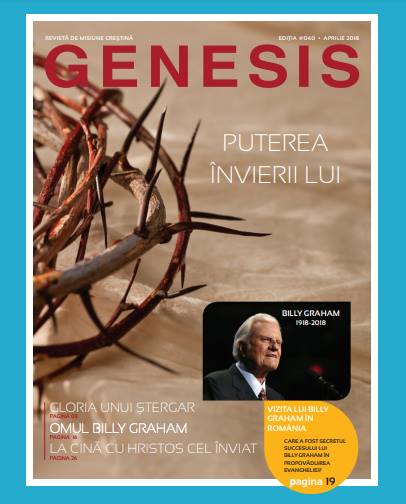








































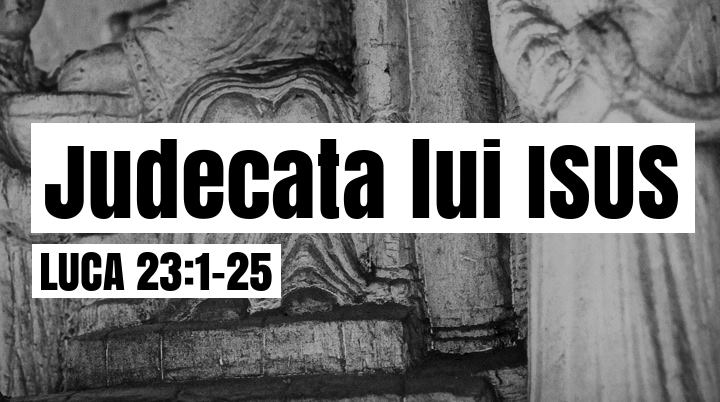














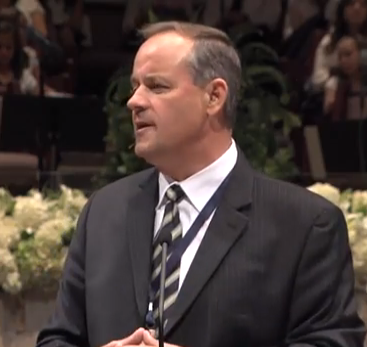





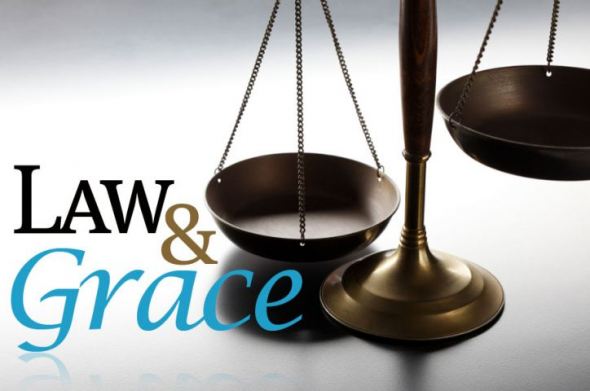





































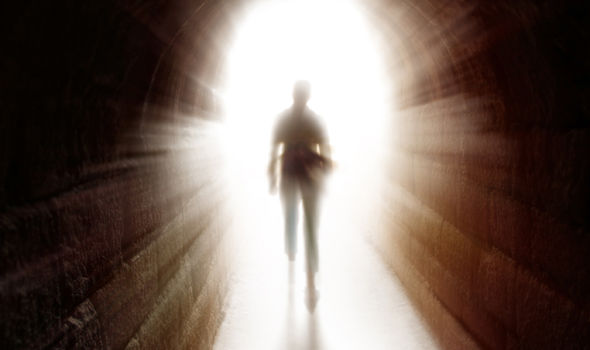










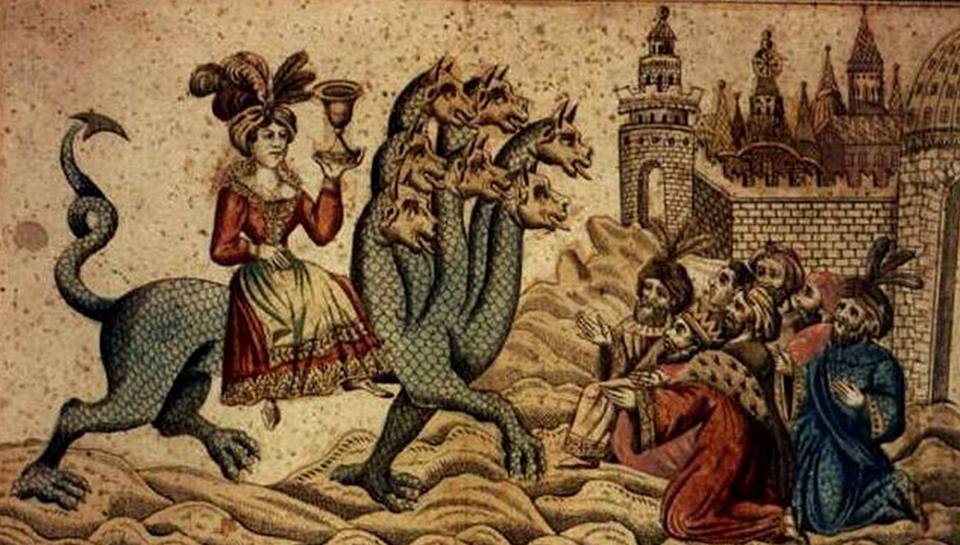
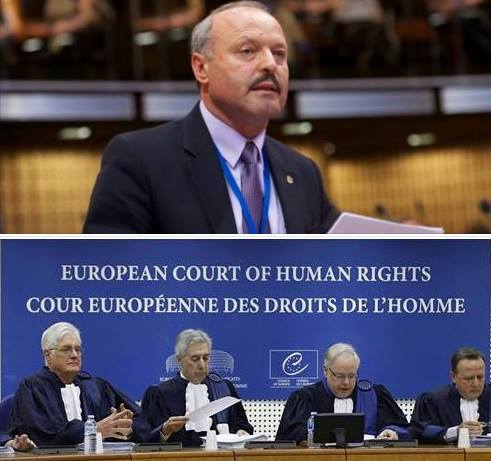










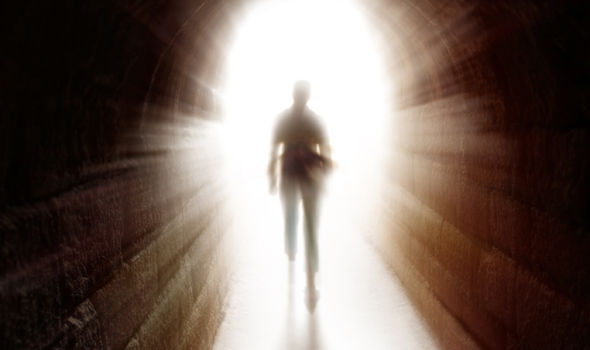









































apr. 04, 2011 @ 04:01:32
the apoleia word-group has a range of meanings, dependent on context, and is applied to the ‘lost’ son, a ‘ruined’ wineskin
This is taken almost word-for-word from Carson’s The Gagging of God Townsend should cite his sources better 🙂
Strangely though, Carson never attempts to show that the word, when used in specific contexts of judgement, means anything other than a person being slain. In the synoptics, whenever apollumi is used to describe the actions of one person against another, it always means to slay (I heard that from Glenn Peoples–gotta cite my source! :))
It’s a bit of a red-herring for traditionalists to describe how the word is used in reference to coins and wineskins and perfumes.
apr. 04, 2011 @ 10:58:26
That’s very interesting. Carson did publish his book (the Gagging of God) in 1996 and the paper is written in 1999. But, it is also very possible that they came to their conclusions independently.
Also interesting is how a subject that was almost forgotten and discarded in most churches- hell and eternal destiny of man, is now at the forefront of discussion and debates.
Hopefully other theologians will weigh in soon (including D.A.Carson). Thanks for your points! They are worth investigating through further reading 🙂
P.S. Have you seen this bit from Carson’s book ‘The Gospel according to John’ on apoleia and Carspn’s link of the word to Isaiah 35:4-(the people I have totally destroyed)? Here’s the link to the page -it’s in the third paragraph.
http://books.google.com/books?id=zBRuo3LHyS4C&lpg=PA563&ots=lb67iq9XWQ&dq=carson%20on%20apoleia&pg=PA563#v=onepage&q&f=false
apr. 04, 2011 @ 23:29:21
The argument made by both Carson and Townsend is original to neither of them; it was the wording that struck me. Here is Carson’s:
The [apoleia] word-group has a range of meanings, depending on the context. It can refer to the „lost” coin or son of Luke 15, and to the „ruined” wineskin of Matthew 9:17
Also interesting is how a subject that was almost forgotten and discarded in most churches- hell and eternal destiny of man, is now at the forefront of discussion and debates.
Yes, I think we’re in the midst of a shift towards the position I hold (conditionalism)–but I’m probably biased 🙂
That’s a good observation from Carson’s John commentary. Yes, I think when used transitively in reference to humans, apoleia almost always refers to either slaying (as with individuals) or total destruction (as with groups, e.g. Sodom). It does seem strange that it would refer to something like „ruin” when used to describe final punishment; so that line of reasoning strikes me as contrived.
apr. 05, 2011 @ 09:20:29
your blog aids nicely to the discussion.
In this whole debate though, I hope it is not lost on us – That the Gospel is the power of God unto salvation and that Christ Jesus came into this world to save sinners like us.
P.S. Here’s an interesting (if short) overview pitting traditionalism against conditionalism, in an examination of The Theological Method of Edward Fudge, where Carson weighs in under the heading ‘The appeal to linguistics’
http://www.mtio.com/articles/bissar21.htm
apr. 07, 2011 @ 01:40:12
Thanks for the reminder rodi.
Kind regards,
Ronnie